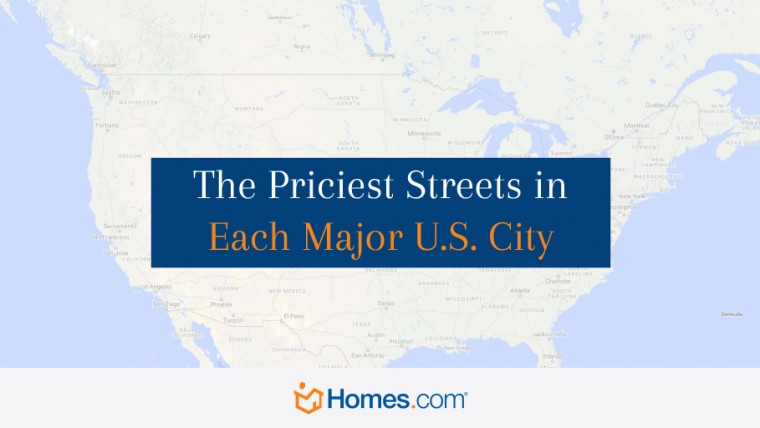What to Expect
Costs include lenders’ fees as well as third-party fees for services such as appraisals and credit reports. The survey excludes title insurance, title search, property taxes, property insurance, homeowners’ association fees, interest and other prepaid items.
It also does not include private mortgage insurance premiums.
Closing costs nationwide are fairly consistent with the exception of a few states. Due to differing regulatory, legal and document recording rules for the most part; the most expensive states to close are not all that surprising.

5 most expensive states for closing costs
| Rank | State | Origination fees | Third-party fees | Total fees |
| 1 | Hawaii | $1,970 | $949 | $2,919 |
| 2 | Alaska | $1,925 | $750 | $2,675 |
| 3 | South Carolina | $1,935 | $723 | $2,658 |
| 4 | California | $1,977 | $662 | $2,639 |
| 5 | New Mexico | $1,807 | $760 | $2,566 |
On average you will, for the scenario outlined above, pay a little over $2,200 in “closing costs.” Be aware that there are more closing costs than included in the survey because they are optional, owner’s title insurance being the biggest example: completely optional, yet entirely foolish to not get. Owner’s title is often one of the biggest expenses you will see on your HUD-1 Settlement Statement.
In all honesty, expect to pay at least 2% of your purchase price for closing costs. In the more expensive states, and for home purchases at prices lower than $150,000, you can and should expect to pay more. Here’s what you can expect to pay in general for the major closing fee line items.
Lender Fees
Appraisal Fee – Fee paid to the appraiser to determine the fair market value of the property. $450 – $490
Processing Fee – Fee paid to cover the cost of processing the loan. Varies, but $300 – $800 is typical.
Underwriting Fee –Fee charged by the lender to cover the cost of underwriting the loan and administrative costs. $600 – $1200
Flood Certification Fee – Fee charged to obtain flood certification certificate. $9-$19
Discount Points – Points charged to buy your interest rate down to a lower rate. (1%-2% of the loan amount)
Loan Origination Fee – A fee charged for doing your loan or fee charged because of bad credit score. (0.5%-2% of the loan amount)
Pre-Paid Interest – You will pay a per diem interest from the day you close till the end of the month.
The Attorney & Title Fees
Attorney Fee – Fee charged by the attorney for his services. ($300 – $500)
Title Search – Fee charged to search the title of the property. ($110-$160)
Title Insurance – Fee charged to purchase owners and lenders title insurance ($4.40 per thousand of purchase price)
Title Insurance Binder – Fee charged to put the title report together and prepare the closing protection letter. ($25-$30)
Wire Fee – Fee charged to accept the incoming wire from the lender ($10-$15)
Overnight Fee – Fee charged to overnight the loan package backed to the lender ($40-$50)
Government Fees
Recording Fee – The County will charge you to record your deed and your mortgage. The County charges per page. ($285-$450)
Transfer Fee – Varies based on state and is split equally between the buyer and the seller.
Pre-Paid Items
Hazard Insurance Premium – This is your first year’s homeowner’s insurance premium that will be paid at closing. ($300-$850)
Survey – The fee paid to have the property surveyed, the fee and the requirement to obtain varies based on geography. ($250-$650)
Home Inspection – Fee paid to the home inspector to inspect the property. ($350-$450)
Pest Inspection – Fee paid to have the property inspected for wood destroying insects. ($55-$85)
Are My Closing Costs Negotiable?
Yes and no. Third party fees are generally not negotiable; they go to pay that third party – fees like your appraisal and credit report, for example. Lender origination fees are generally static as well due to the loan officer compensation regulations. Discount points are negotiable, but will likely affect the interest rate you pay.
Title fees, which are not included in the Bank Rate survey, can generally be shopped to find the best deal.
Are There Other Ways to Handle Closing Costs?
If money is tight and you would like to keep some of your assets in place for renovations, upgrades, moving, furniture, etc. there are some ways to address the closing costs other than paying them out of pocket.
- Seller Concessions – On a conventional loan the seller can pay your closing costs up to 3% of the purchase price. Just make sure your real estate agent includes it in the purchase contract.
- Lender-Paid Closing Costs – your mortgage lender can provide a credit that will offset, or pay in full, your closing costs through a slightly higher interest rate.
If you have a savvy loan officer they can guide you toward the option that provides you the best path to qualify and they can do that BEFORE you draft a purchase contract.
Ironing these numbers out before you draft a purchase contract is hugely important. I know we’ve mentioned it several times, but if you take anything away from reading this, I want it to be upfront planning and rock solid pre-approval are both needed at the very beginning of the process.
Amazon.com Best-selling author, Shashank Shekhar (NMLS 8176) is a mortgage lender with Arcus Lending, offering loans for home purchase and refinance. Shashank has been featured as a mortgage expert on Yahoo! News, ABC, CBS, NBC and FOX. He has been named "Top 40 under 40" most influential mortgage professionals in the country.

















